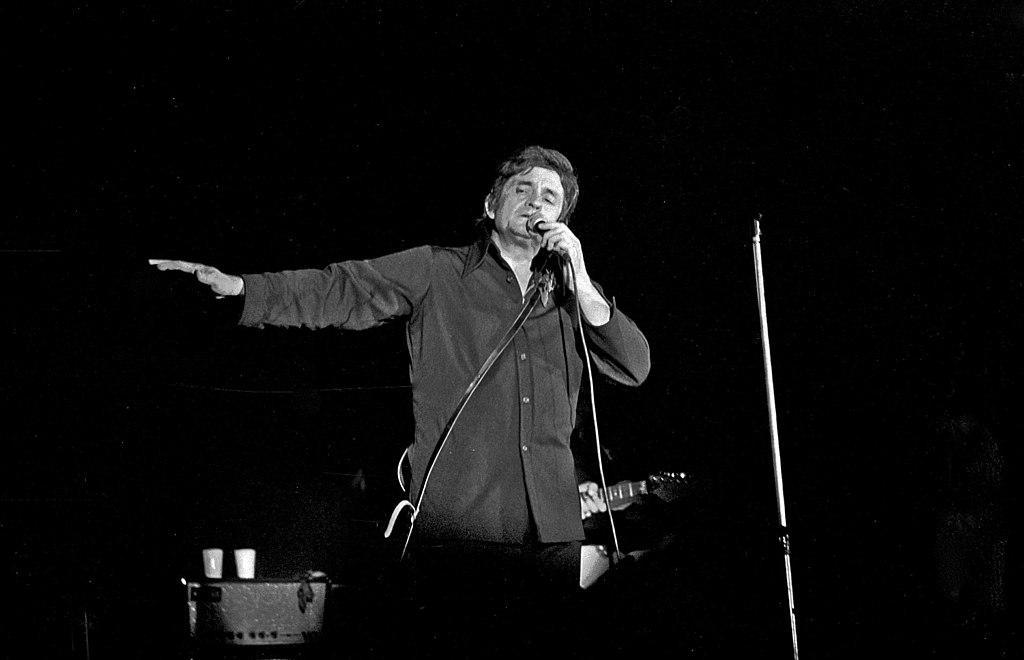Johnny Cash did not actually fall into a burning ring of fire, but in the summer of 1965 he certainly created one.
The official story is that Cash was driving through California’s Los Padres National Forest watershed in when his camper truck, which he called “Jesse,” became stuck on a road near Sespe Creek. In an attempt to free the vehicle, he gunned the motor, setting off sparks that ignited a massive fire, which ultimately destroyed 508 acres of national forest land.
In his 2003 autobiography named Cash the star admitted that he pretended to be fishing so he would appear oblivious to the fire raging around him. This ill-conceived plan backfired when Cash was sued in federal court in 1967 for $125,127.52.
“I sat there while the fire-fighting crews arrived and headed up the mountain with their shovels and axes and then the fire-bomber planes swooped in to drop their loads of boron,” he stated in his autobiography.
By nightfall on June 27, 1965, more than 400 firefighters, a troupe of helijumpers, five air tankers, 150 Navy Seabees and a prison inmate crew were battling the flames. Finally they pinpointed the origin. When Cash was confronted by a forestry officer about whether he had started the fire, he said “my truck did.”
Long before the days of cell phones, Cash could not call for help, and the officer did not offer transportation out of the deep woods. His vehicle was destroyed, and he ended up sleeping on the bare ground not really sure how he was going to get home.
At that time “home” was a ranch in Ventura County, California, where he lived with his then-wife, Vivian, and their daughters, Rosanne, Kathy, Tara and Cindy. The next morning, after several failed hitchhiking attempts and walking several miles, someone finally gave him a ride.
“As it turned out Jesse and I had picked a bad spot to burn,” Cash wrote, explaining that forests on three mountains scorched by the fire were part of a refuge for endangered species, including condors. “A count of 53 had been made before the fire; after the fire it went down to nine.”
Cash’s nephew, Damon Fielder, has stated that he believed that Cash started a fire to keep warm, and when it got out of hand, Cash was too drugged to stop it. Cash conceded in his book that “touring and drugs is what I did” during that time.
“I was such a mess that I didn’t care,” Cash said regarding his state of mind when he was called in for depositions in the federal court case, saying that he was “full of amphetamines and arrogance, refusing to answer their questions straight.”
When asked how he felt about destroying more than half the world’s population of California condors, he answered, “ I don’t give a damn about your yellow buzzards. Why should I care?”
In its suit the federal government alleged that Cash was negligent in the operation, maintenance and repair of his vehicle; that he failed to take reasonable precautions to control the fire; and that he failed to report it to the proper authorities. The equivalent of $950,000 in today’s money, the damages request was to recover the cost of extinguishing the fire and reseeding the burned land.
When time came for the trial in early 1969, Cash was married to June Carter Cash and had moved to Hendersonville, Tennessee. When he claimed that he was too sick to appear in Los Angeles for his trial, the assistant U.S. attorney general didn’t believe him and asked for an FBI investigation to include a physical examination by a reliable physician.
The investigation was conducted between February and July 1969, and under the Freedom of Information Act the 16-page FBI report is now published online. The FBI report specifically stated that Cash’s wife was not the subject of the investigation, but Cash’s past was scrutinized.
In 1961 he was arrested on “drunk” charges in Nashville and forfeited a $5 fine. He was again charged with “drunk” in Minden, Nevada, and released on $50 bail in May 1965. That same month he was arrested in Starkville, Mississippi, for trespassing to pick flowers. In October ‘65 he was arrested by U.S Marshalls at El Paso, Texas, for smuggling and concealing Dexedrine and Equanil tablets. He was fined $2,000 and sentenced to 30 days on each charge, but the sentences were suspended.
Although Cash landed in jail seven times for misdemeanors, he stayed only one night each occasion and usually got off with small and sometimes no fines. Even his hit “Folsom Prison Blues” was written after seeing a film about the institution and not because he had been incarcerated there.
The FBI report does not include documentation about a physical examination, but by mid-summer Cash had settled with the government. In Cash’s book he stated that he paid the government the entire $125,000, but according to court documents a final judgement against Cash was entered on June 30, 1969, in favor of the United States in the amount of $82,000 with a six percent interest rate. That amount had the same buying power in 1969 as $557,673.95 does today.
Also included in the FBI file was a 1971 update on Cash, which stated that Cash was “a reformed drinker and “had taken the pledge,” that he had earned a good reputation at that time and was “reportedly religious.” In a 1976 interview with The Evening Sun (Baltimore, Maryland), Cash concluded that the reason he was not dead was because of his wife and his religion.
The song “Ring of Fire” was penned by June Carter and Merle Kilgore and would become the most successful recording of Cash’s career. Prophetically, he recorded it in 1963 – two years – before he nearly burned down a national forest and wiped out an endangered species.
This copyrighted story by Claudia Johnson was originally published as apart of a Music and Mayhem series in Country Reunion Magazine and Country Reunion News.

